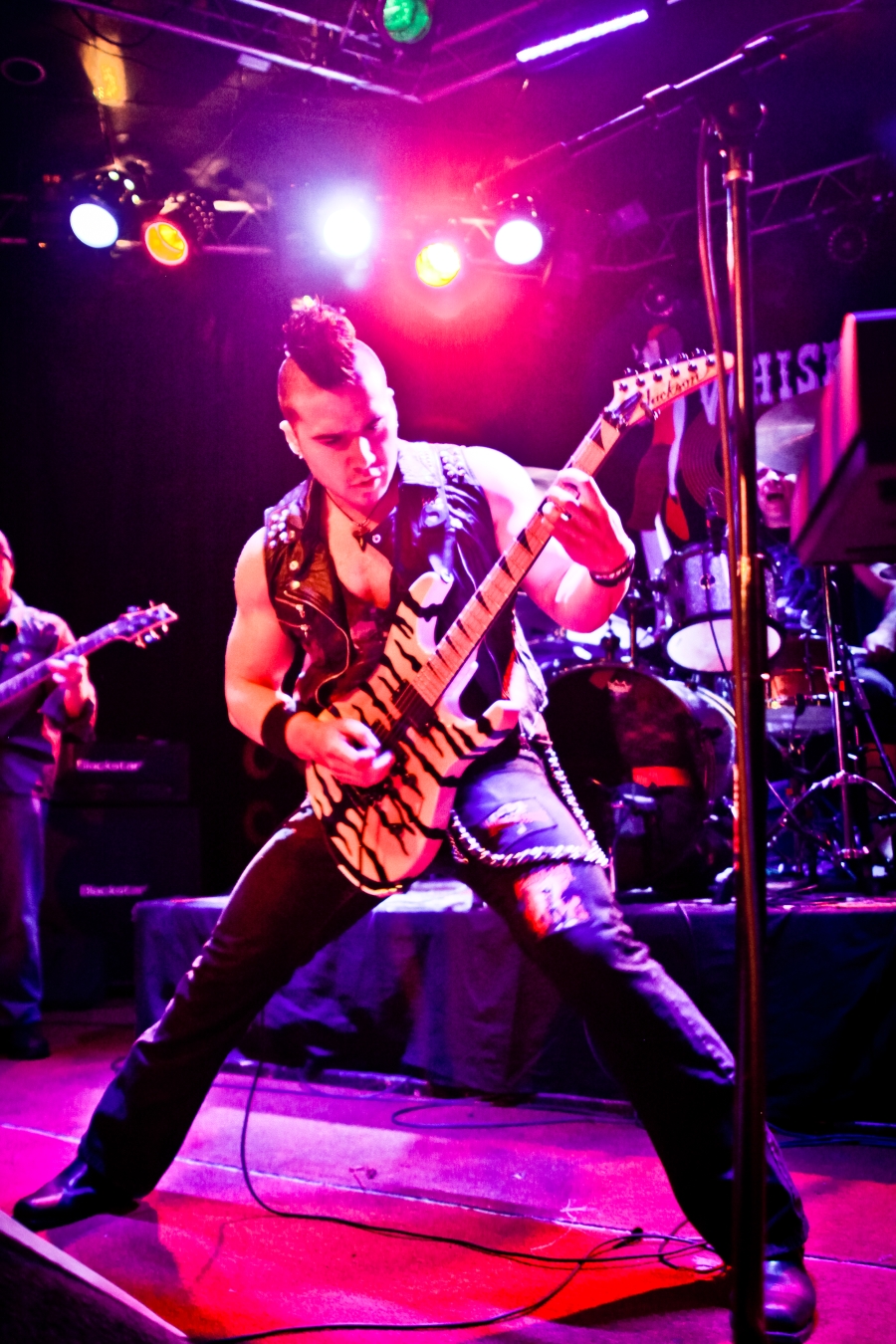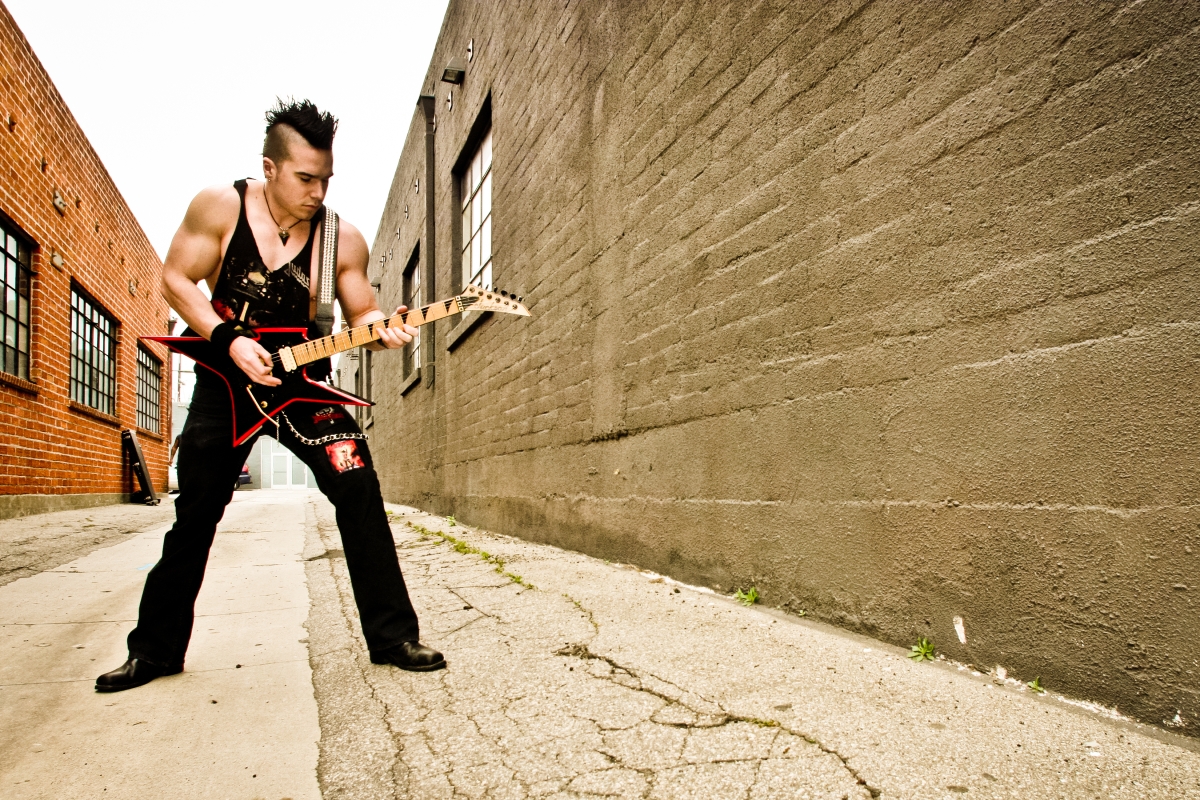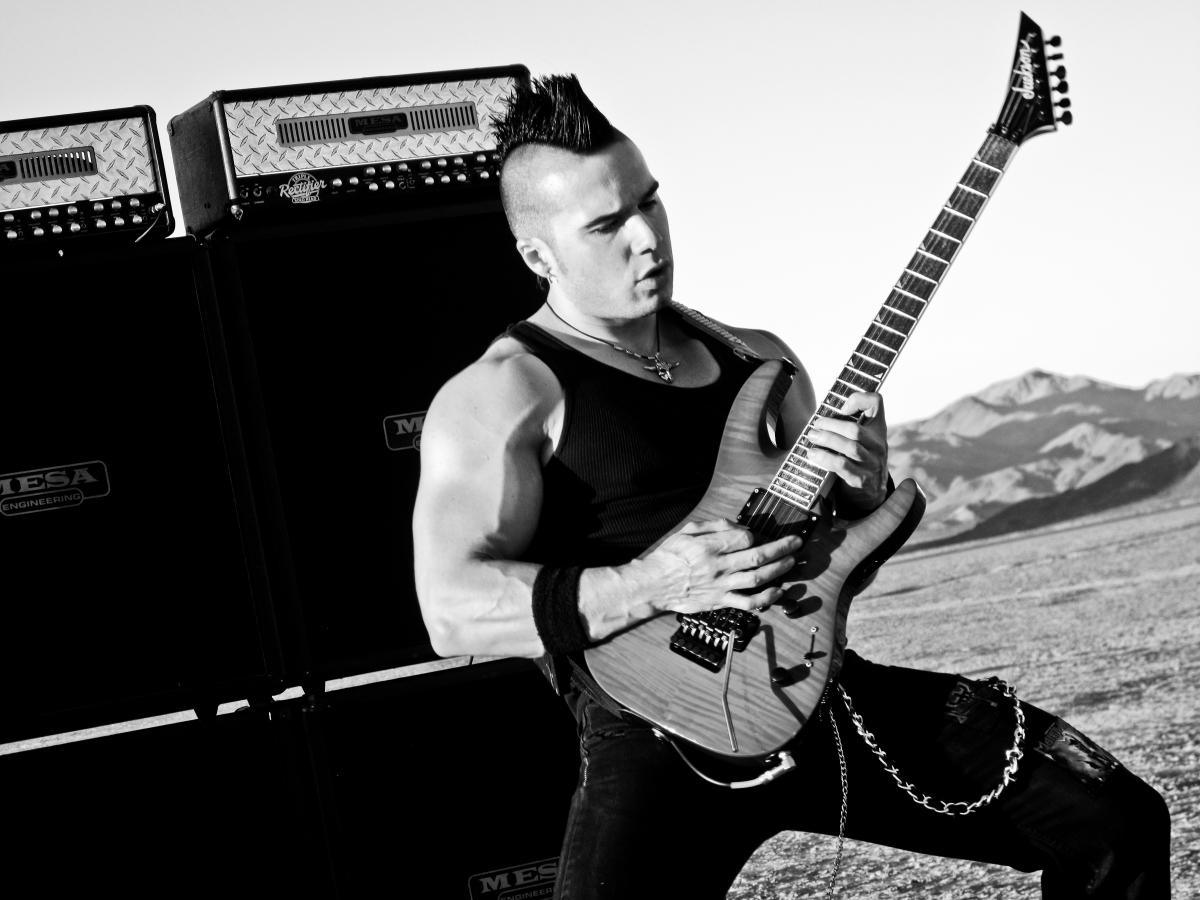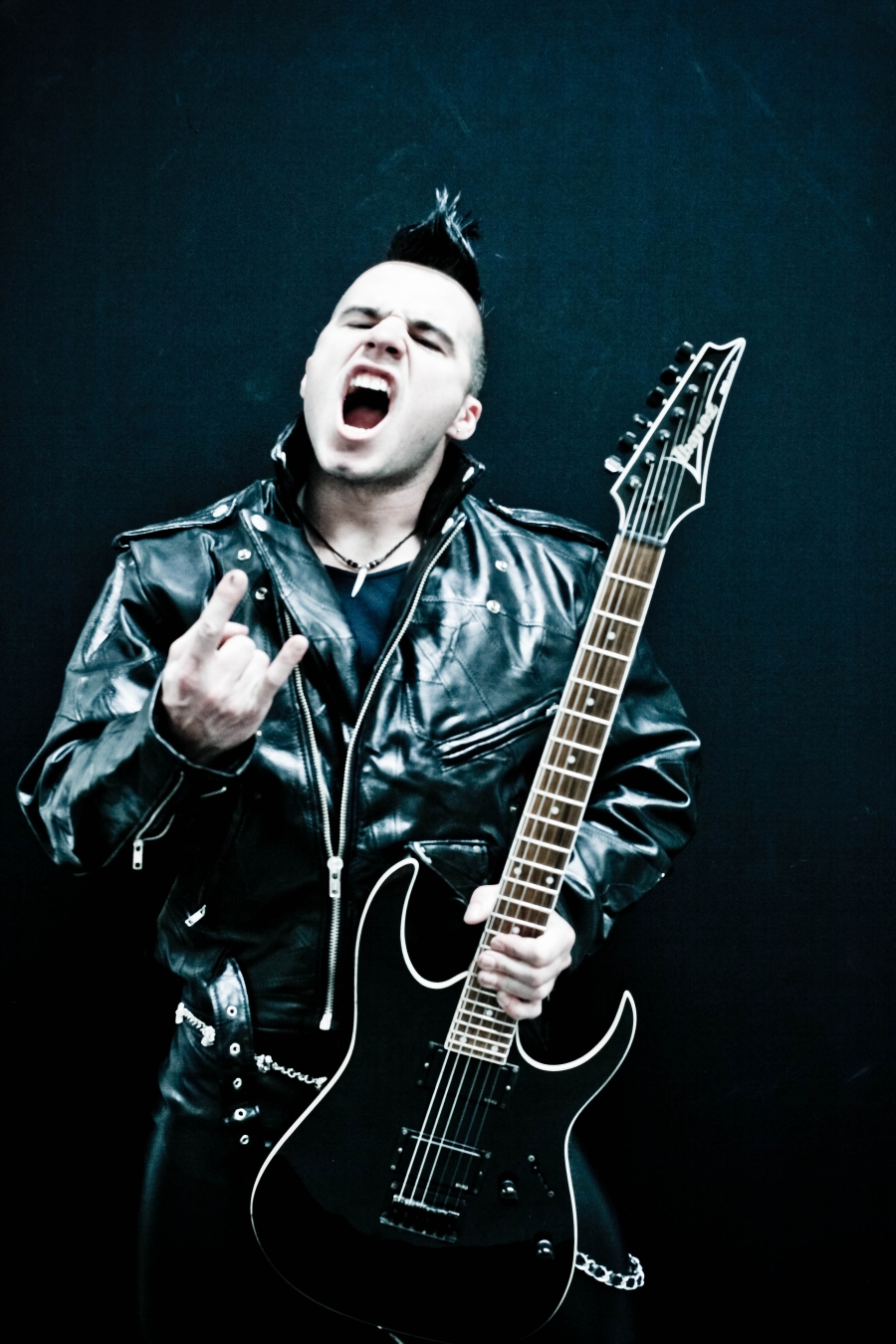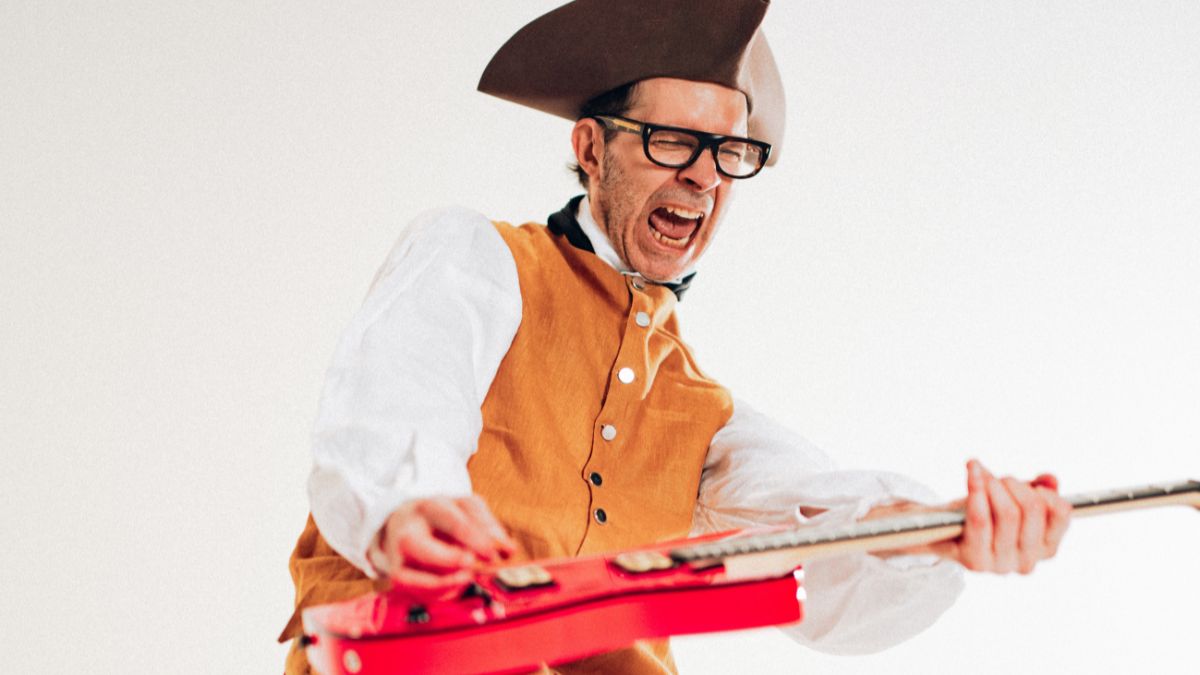Interview: Guitarist Maxxxwell Carlisle Talks Gear, the LA Scene and His Latest EP, 'Full Metal Thunder'
All the latest guitar news, interviews, lessons, reviews, deals and more, direct to your inbox!
You are now subscribed
Your newsletter sign-up was successful
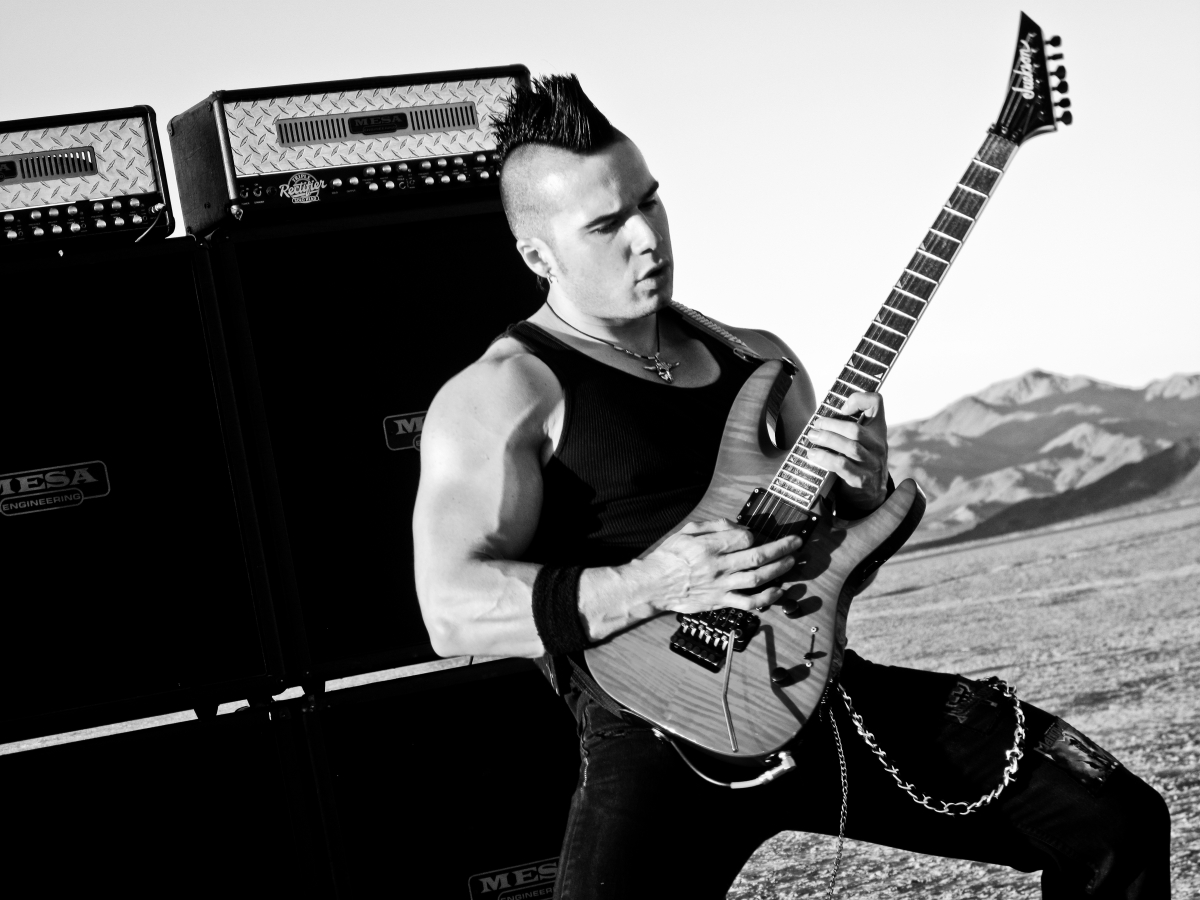
Maxxxwell Carlisle is an up-and-coming guitarist on LA's metal scene. He has released two EP’s in only six months, and he's working on even more projects at the moment. We recently spoke to Carlisle — who has played with Death Riders and other notable LA-based bands — about what it's like to have so many irons in the fire.
GUITAR WORLD: Tell us about the new recordings you have out now. Both EPs feature different singers, correct?
I've released two EP's in the past six months: Visions of Victory in November and Full Metal Thunder on April 3. Originally I was going to do a full-length power-and-shred metal album with two singers, one male and one female, each singing half the album. But as the songs started to come together, I felt their voices were too different to put on the same project.
Caro Lion, who sings on the first EP, has a classic '80s female rock voice. Michael Yancy sings on the second EP, and his voice is much more "metal" — raspier, kind of a cross between Udo Dirkschneider and Jeff Scott Soto, if you can imagine that. I made the decision to release them as two EPs. I'm glad I did it that way.
It's hard for me to pick which EP is my favorite. They're quite different. Visions of Victory is more melodic power metal, and Full Metal Thunder has a heavier thrash feel to it. My favorite track from that one is the title track. From the first EP, it would be "Power Angel," which we also shot a video for. That's had a great response, and we're going to be doing another video for the new release as well.
Do you have special guests on any of the tracks?
One of my favorite things about releasing anything is when I get to include some killer guest artists. Between the two EP's, Ethan Brosh, Rick Renstrom, Nita Strauss and Dannyjoe Carter do guest solos. I've been fortunate to work with great people in the past, like Michael Angelo Batio and electric cellist Tina Guo. I always dig hearing other people play on my tunes. It pushes me harder as a player, because they can all shred their asses off.
All the latest guitar news, interviews, lessons, reviews, deals and more, direct to your inbox!
What main guitars were used on the EP's?
I used three guitars for the bulk of the tracks: an older Ibanez RG that's a hard tail, no whammy bar; and my two Jackson DK2Ms. Those are basically Dinkys with maple fret boards. The Ibanez has the classic EMG 81/85 combo, and one Jackson has a Seymour Duncan JB and '59. The other one has Blackouts. I've gotta say, the Blackouts are my favorite! I used the Ibanez for most of the rhythm parts and the Jacksons for the leads. Live, I've been using the Jacksons mostly.
What do you want the guitar community out there to know about you?
I think a lot of people look at what I'm doing and think I'm crazy. Here's this guy, a bodybuilder with a Mohawk who plays shred metal in a sea of Indie rock and metalcore bands. I want people to know that musically I take what I do very seriously. I put a lot of work into my chops and the whole package of what I'm doing. But on the other hand, I don't take myself too seriously and I'm in this to have a good time. I can laugh at myself, and I'm fine with the fact that not everyone will like or "get" what I do. I've got a photo from a few years back of me and Herman Li. He's got me in a choke hold and I'm holding up a sign that says "Dragonforce Sucks!" I love crazy stuff like that. By the way, did you know he's a Jiu-Jitsu expert? Hardly anyone knows that, but it's true!
What do you use in terms of amps and pedals?
For the EPs, I basically used two different amps: a Marshall 50-watt DSL 2000 and a Bugera 6262. I would run one of those into a Carvin Legacy 4x12 loaded with Celestion Vintage 30s. I also did some extra guitar layers recording direct, but that ends up buried in the mix. I still prefer the sound of a mic'd-up, cranked tube amp!
For pedals I always use a Maxon OD808 to boost my amps. I can't get enough of the sustain and fatness that thing brings to the table. I also use the Ibanez Paul Gilbert Airplane Flanger, although only on one song. Gotta have it though; it has a totally unique sound. Plus I'm a firm believer that anything related to Paul Gilbert makes your rig sound better! It makes you big in Japan too!
For all my other effects I use a Boss GT8, which is actually an older model of their big multi-effects floorboard. I've got it programmed and setup perfectly for my rig so I've kind of been putting off upgrading it, and I use it in "4-cable mode," which basically means I run the preamp of my head through the effects loop of the GT. That way I'm using my actually preamp tone and not a simulated preamp.
Who are your influences? When was the moment that you realized that you wanted to play?
I remember watching the movie Crossroads as a kid. I thought everything about it was just sort of cool, until they get to the scene at the end with Steve Vai. When he comes out as this bad ass shredder guy in the final guitar battle, that was what really blew my mind. It wasn't until years later that I actually started playing guitar seriously, but that was what first put the idea in my head. I still love that scene.
As far as influences, I draw from the people who I consider to be the technical masters. Guys like Chris Impellitteri, Michael Angelo Batio, Rusty Cooley, Tony MacAlpine, Luca Turilli, Paul Gilbert, Akira Takasaki and Yngwie Malmsteen, just to name a few. Some of them influenced me just from a playing standpoint and with others it's more about the songwriting or just how they present themselves. I really admire guys who stand the test of time too, and are not just a flash in the pan. That's something I'm hoping will happen with my own career. I'd like to still be playing blazing solos in 40 years.
You're an avid body building enthusiast. Does it affect your playing? Was it harder to play when you were competitively training?
People ask me all the time, "Doesn't lifting weights interfere with your playing?" The answer is no. I have heard about other people having problems, but I've never had any issues. I do make an effort to not beat up my hands, like I don't do boxing or anything like that, but as far as weight training, even heavy stuff, I've had zero problems. I've been doing it a long time too, like lifting and playing for 15 years each. If anything there are actually a lot of parallels between the two. The way you build up a muscle over time is very similar to developing a technique or developing speed in your playing. They both take a lot of time and consistency, and they're both fun as hell. Plus, there are chicks at the gym, chicks at shows, so it's all good.
You live and play in Los Angeles. Tell us about the general state of the industry out there as you see it. Where do you think it's going?
I think the scene in LA is pretty representative of the state of the industry in the US in general. And I have to say, I'm not stoked about it. As far as rock and metal bands, you basically have two dominating genres. That would be metalcore and Indie rock. The indie stuff I hate with a passion. It's pretentious and provides a way for people to pass off bad musicianship as art. Metalcore I can handle in small doses, but you never, ever get it in small doses!
There's just too many bands! And I know this is a cliche thing to say, but every fucking band sounds the same! Every song sounds the same! Shit, even the stuff the singer says to the crowd in between songs is the same. "Let me see your hands in the air!" "Are you with us!" "Let's tear this up!" And don't get me wrong, there are actually a lot of really great musicians in that scene. But come on. It's OK to do something different!
I think the problems the industry is going through right now have created a huge lack of diversity. The thought process that most bands have is, "OK, we want to get signed. Labels are making a lot less money, and they don't want to take any financial risks, so we need to do whatever is most popular, mainstream and safe."
And then you just end up with a million bands all doing the same thing. That's what killed hair metal! And that was even back when people still paid for music! When you think about it, the bands that really are making it these days are always bands that are doing something different and stand out from the pack. Look at Steel Panther! Who would have thought that a throw-back glam metal band would be as big as they are today? They're different, unique and let's face it, kick all kinds of musical ass, so people pay attention to them.
Dave Reffett is a Berklee College of Music graduate and has worked with some of the best players in rock and metal. He is an instructor at (and the head of) the Hard Rock and Heavy Metal department at The Real School of Music in the metro Boston area. He also is a master clinician and a highly-in-demand private guitar teacher. He teaches lessons in person and worldwide via Skype. As an artist and performer, he is working on some soon-to-be revealed high-profile projects with A-list players in rock and metal. In 2009, he formed the musical project Shredding The Envelope and released the critically acclaimed album The Call Of The Flames. Dave also is an official artist endorsee for companies like Seymour Duncan, Gibson, Eminence and Esoterik Guitars, which in 2011 released a Dave Reffett signature model guitar, the DR-1. Dave has worked in the past at Sanctuary Records and Virgin Records, where he promoting acts like The Rolling Stones, Janet Jackson, Korn and Meat Loaf.
